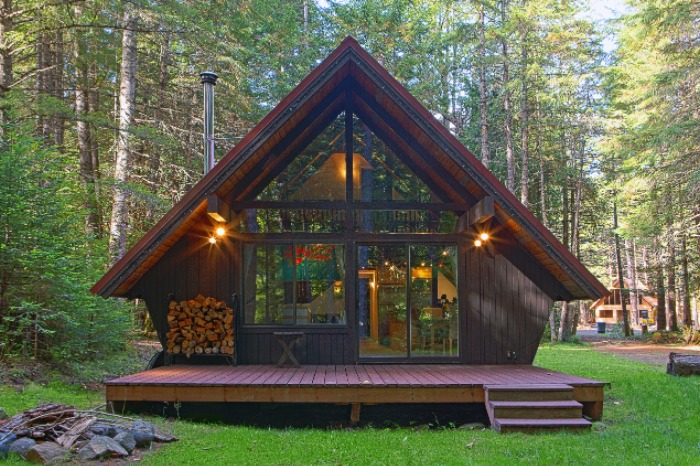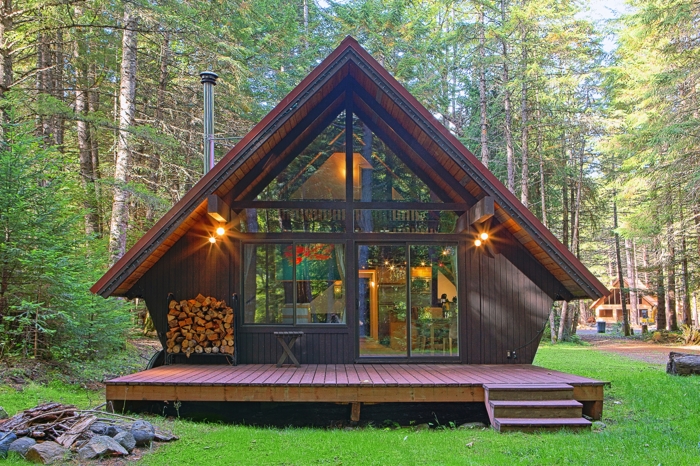The process of an Airbnb appraisal involves determining the fair market value of a property used as a short-term rental, such as those listed on Airbnb or Vrbo.
Unlike traditional long-term rentals or owner-occupied homes, vacation rentals require a specialized approach to valuation, employing different methods to account for their unique income-generating potential and operational complexities. Income from long-term leases is generally more stable and predictable, offering lower risk for lenders, whereas short-term rentals often experience more variable income due to higher vacancy rates and fluctuating daily rates.
This Airbnb Tips article provides a comprehensive overview of how to value an Airbnb property, assess its suitability for short-term rentals, and navigate the appraisal process, with insights from 10XBNB, a leader in short-term rental education and investment strategies.
Introduction to Short-Term Rentals
Short-term rentals, such as those found on Airbnb and VRBO, have become a popular alternative to traditional hotels and vacation rentals.
These properties offer travelers a unique and often more affordable option for accommodations, with the added benefit of amenities like private kitchens and laundry facilities.
Residential appraisers are increasingly being asked to value these types of properties, which can be challenging due to their unique characteristics and income potential. However, residential appraisers traditionally are not competent in developing Going-Concern or Use Value, which is typically the domain of commercial appraisers.
In this section, we will explore the basics of short-term rentals and their impact on the real estate market.
A real estate agent can assist property owners by providing income documentation for short-term rentals and helping navigate local regulations that may affect STR operations.
Introduction to Short-Term Rentals
Short-term rentals, such as those found on Airbnb and VRBO, have become a popular alternative to traditional hotels and vacation rentals.
These properties offer travelers a unique and often more affordable option for accommodations, with the added benefit of amenities like private kitchens and laundry facilities.
Residential appraisers are increasingly being asked to value these types of properties, which can be challenging due to their unique characteristics and income potential. However, residential appraisers traditionally are not competent in developing Going-Concern or Use Value, which is typically the domain of commercial appraisers.
In this section, we will explore the basics of short-term rentals and their impact on the real estate market.
A real estate agent can assist property owners by providing income documentation for short-term rentals and helping navigate local regulations that may affect STR operations.

What Is an Airbnb Appraisal?
An Airbnb appraisal evaluates the market value of a residential property operated as a short-term rental. Residential appraisers assess the property based on its real property, personal property, and intangible property components.
The real property includes the land and physical structure, while personal property encompasses items like furniture, appliances, and window coverings. Intangible property refers to the STR business aspects, such as property’s internet listings and guest reviews, which contribute to income potential. Providing documented income and expense records for the last 12 to 24 months proves a property is a successful business.
The appraisal often employs the income approach, which calculates value based on the net operating income (NOI) generated by the short-term rental. Accurately documenting the income generated by the property is crucial for a reliable appraisal, as it provides essential data for evaluating revenue, understanding financial risks, and supporting lending decisions. Appraisals for STRs are challenged by a lack of clear industry standards for incorporating short-term rental income and metrics into valuation.
This method is particularly relevant for investment properties, as it reflects the property’s ability to produce STR income. According to the Appraisal Institute, appraisers must consider the going concern value, which includes the business side of operating a vacation rental, such as daily management decisions involved and credit card processing for bookings.
Why Is an Airbnb Appraisal Important?
An Airbnb appraisal is critical for financial institutions, loan officers, and investors involved in federally related transactions. Most lenders have specific criteria or requirements when evaluating loan applications for short-term rental properties. There is a conflict between lenders’ expectations for appraisers to include both property and business values when many appraisers only focus on the real estate.
It provides an accurate valuation for investment properties, ensuring lenders and buyers understand the property’s****market value and income potential. For hosts, an appraisal helps determine whether a specific property is a viable short-term rental investment, especially in numerous vacation spots like San Diego, Santa Monica, or Lake Tahoe.
Pro Tip: Before purchasing a property for short-term rentals, consider that requests involve homes being evaluated as both residential properties and income-generating assets, which adds complexity to the appraisal process. Consult with a residential appraiser experienced in vacation rentals to assess its going concern value. This ensures you account for both tangible assets and intangible property like guest ratings.
Understanding the Real Estate Market
The real estate market is constantly evolving, with new trends and technologies emerging all the time. One of the key factors affecting the market is the rise of short-term rentals, which are changing the way people think about vacation properties and investment opportunities. Residential appraisers must stay up-to-date on these trends and understand how they impact property values. This includes considering factors like market demand, competition, and regulatory environment. Occupancy rate is also a crucial metric, as it reflects the percentage of time a property is rented out and directly influences the income potential and demand for short-term rentals.
How Do You Determine the Value of an Airbnb?
Valuing an Airbnb property involves analyzing three major components: real estate, personal property, and the STR business. Below are the key methods used by residential appraisers, including various income approaches that are particularly relevant for short-term rentals:
1. Income Approach
The income approach is the most common method for valuing short-term rentals. Unlike long term rental homes, short-term rentals have unique income potential that must be accurately assessed. It calculates the market value based on the net operating income (NOI) and capitalization rate (cap rate). The formula is:
Market Value = Net Operating Income ÷ Cap Rate
To calculate NOI, subtract operating expenses (e.g., weekly cleaning, utilities, and credit card processing fees) from the total yearly income. The cap rate reflects the risk and return of the investment property, typically ranging from 5% to 10% for vacation rentals. For example, a property in Santa Monica generating $50,000 in NOI with a 7% cap rate would have a market value of approximately $714,285.
Pro Tip: Use tools like the mid-term rental calculator from 10XBNB to estimate NOI and assess income potential accurately.
Lenders and appraisers also use the debt service coverage ratio (DSCR) to evaluate whether the income from a short-term rental is sufficient to cover mortgage payments, making it a key factor in loan qualification and risk assessment for STR financing.
2. Gross Rent Multiplier (GRM)
The gross rent multiplier method is a simpler approach to estimate value. To calculate, simply divide the property’s sale price by its gross annual rent. For instance, if a single-family home in San Diego sells for $800,000 and generates $80,000 in STR income, the GRM is 10. Comparing the GRM to similar properties in the area helps determine if the property is priced competitively.
3. Sales Comparison Approach
This method compares the subject property to similar properties recently sold in the same market. Residential appraisers adjust for differences in square footage, amenities, and STR income. However, finding comparable short-term rentals can be challenging due to varying vacancy rates and market rent levels.
4. Cap Rate and Valuation
When valuing a short-term rental property, it’s essential to consider the cap rate, or capitalization rate, which is the ratio of net operating income to the property’s value. The cap rate is a critical factor in determining the property’s value, as it reflects the return on investment that an investor can expect. Residential appraisers must understand how to calculate the cap rate and use it to determine the value of a short-term rental property. This includes considering factors like rental income, expenses, and market conditions.
5. Going Concern Value
The going concern value accounts for the STR business as a whole, including the unique characteristics of each particular property, such as its internet listings and booking history. For Vrbo properties or Airbnb listings, this includes the value of guest reviews, which can drive elevated income. 10XBNB emphasizes that a well-managed STR business can significantly increase a property’s market value.
Pro Tip: Protect your going concern value by ensuring personal property like furniture is well-maintained. Replacing damaged furniture or addressing issues like a defective deck railing can prevent negative reviews that lower income potential.

How to Check If a Property Is Good for Airbnb?
Assessing a property’s suitability for short-term rentals requires evaluating its location, condition, and income potential. Most appraisers may not have access to the specialized data or analytical tools needed to accurately assess short-term rental income, which can affect the reliability of appraisals. Here’s how to determine if a specific property is a good fit:
1. Location Analysis
Numerous vacation spots ranging from Santa Monica to Lake Tahoe attract vacation rental guests. Research local demand by analyzing market rent and vacancy rates on online platforms like Airbnb and Vrbo. Properties in high-demand areas with numerous vacation spots typically yield higher STR income.
Pro Tip: Use 10XBNB’s short-term rentals investment guide to identify profitable markets with strong income potential.
2. Regulatory Compliance
Some areas, like Santa Monica, have the toughest regulations for short-term rentals. Check local zoning laws and permitting requirements to ensure the property can legally operate as an Airbnb. Non-compliance can effectively wipe out your income potential. For example, stringent regulations in cities like Santa Monica have effectively wiped out a substantial portion of the short-term rental market.
3. Property Condition
Inspect the real property and personal property for issues like party animal damaged items or defective deck railings. A single-family home with modern amenities and sufficient square footage is ideal for vacation rentals. Ensure trade fixtures like appliances are in good condition to avoid costly replacements.
Pro Tip: Budget for maintenance, including includes replacing worn items like window coverings or damaged furniture, to maintain guest satisfaction and STR income.
4. Financial Feasibility
Calculate the monthly income and total yearly income using data from similar properties. Compare this to the property’s operating costs and cap rate to determine profitability. 10XBNB’s average Airbnb income guide provides benchmarks for expected returns.
5. Risk Assessment
Short-term rentals carry added risk due to fluctuating vacancy rates and potential damage from guests (e.g., last party animal incidents). Verify that the company agreed to personal use restrictions and check if insurance covers Airbnb to mitigate risks.
Key Factors Influencing Airbnb Appraisals
Several economic factors impact the valuation of short-term rentals, including the differences between short-term rentals and traditional residential properties:
- Market Rent: Higher market rent in vacation spots increases STR income and market value.
- Vacancy Rates: Low vacancy rates indicate strong demand, boosting income potential.
- Cap Rate: A lower cap rate reflects lower risk and higher market value for investment properties.
- Personal Property: Well-maintained tangible assets like furniture enhance guest experience and going concern value.
- Online Platforms: Strong property’s internet listings on Airbnb or Vrbo drive bookings and elevated income.
- Occupancy Rate: The occupancy rate is the percentage of time that the property is rented out, while the vacancy rate is the percentage of time that it is not rented out.
Data and Comparables
When appraising a short-term rental property, it’s crucial to gather accurate and reliable data on comparable properties. This includes analyzing sales data, rental income, and expenses for similar properties in the area. Residential appraisers must also consider the unique characteristics of short-term rentals, such as their potential for elevated income and the impact of online platforms like Airbnb and VRBO on the market. Appraisers analyze the historical and projected income and expenses of the property, as well as market rates and trends for similar short-term rentals. By using the right data and comparables, appraisers can provide an accurate valuation of a short-term rental property.
Appraisal Institute Guidelines
The Appraisal Institute sets forth comprehensive guidelines for valuing short term rental properties, ensuring that appraisers deliver accurate and reliable results for both investment properties and residential properties. These guidelines stress the importance of thoroughly understanding the local market, including the demand for short term rentals, the level of competition, and the regulatory environment that may affect a property’s operation and income.
A key principle is determining the property’s highest and best use, which may be as a short term rental rather than a traditional residence. Appraisers are encouraged to use the income approach to estimate the property’s value, carefully projecting the income that the property can generate as a short term rental. The Appraisal Institute also recommends that appraisers distinctly separate the value of the real property (the land and structure) from the business value, which includes the going concern value. This means accounting for personal property such as furnishings and equipment, as well as intangible property like the property’s internet listings, online reputation, and established guest base.
By following these guidelines, appraisers can provide valuations that reflect the true income potential and going concern value of short term rental properties, supporting informed decisions for buyers, sellers, and lenders in the short term rental market.
Specific Property Considerations
When valuing short term rental properties, appraisers must pay close attention to the unique characteristics of each specific property. Factors such as location, size, condition, and amenities can significantly influence a property’s value and income potential. For example, a property situated in a sought-after vacation spot like San Diego or Lake Tahoe is likely to command higher rental rates and experience stronger demand, boosting its overall value.
Properties with standout features—such as a private pool, hot tub, or proximity to popular attractions—can generate higher income and attract more bookings compared to standard offerings. Appraisers also evaluate the property’s potential for upgrades or expansion, which can further enhance its value in the short term rental market. Additionally, local market conditions, including seasonal demand and regulatory restrictions, play a crucial role in determining the property’s viability and long-term income prospects.
By thoroughly analyzing these specific property considerations, appraisers ensure that their valuations accurately reflect the unique strengths and challenges of each short term rental, helping investors and owners make well-informed decisions.
Best Practices for Appraisers
To deliver precise and trustworthy valuations of short term rental properties, appraisers should adopt best practices tailored to the unique nature of these assets. One effective approach is to combine the income approach with the sales comparison approach, leveraging both the property’s income potential and recent sale prices of similar properties. This means calculating the gross rent multiplier, analyzing net operating income, and comparing the subject property to other short term rentals in the area. However, the Gross Rent Multiplier (GRM) is typically used for valuing properties with long-term tenants and may not be appropriate for short-term rentals.
Appraisers should also account for all operating expenses, including maintenance issues, weekly cleaning, and management fees, to ensure an accurate assessment of net income. Monitoring occupancy rates and vacancy rates is essential, as these metrics directly impact the property’s business value and going concern value. By considering these factors, appraisers can provide a comprehensive valuation that reflects the true earning power and operational realities of the short term rental.
Following these best practices helps appraisers deliver valuations that support sound investment decisions and meet the needs of lenders, buyers, and property owners in the dynamic short term rental market.
Maximizing Property Value
Owners and investors looking to maximize the value of their short term rental properties should focus on strategies that enhance both income potential and business value. Investing in renovations and upgrades—such as adding a private pool, updating furnishings, or improving curb appeal—can make a property more attractive to guests and justify higher nightly rates. Utilizing dynamic pricing tools and closely monitoring occupancy rates allows owners to optimize rental income throughout the year, adapting to market trends and seasonal demand. A high Average Daily Rate (ADR) indicates a premium property, which can further enhance its appeal and profitability.
Hiring a professional property management company can also add value by ensuring that maintenance issues are promptly addressed and weekly cleaning is consistently performed, leading to better guest experiences and positive reviews. These operational improvements not only increase the property’s income but also contribute to its going concern value, making it more appealing to future buyers and lenders.
Appraisers can play a key role by advising owners and investors on which improvements will have the greatest impact on value, helping them prioritize investments that yield the highest returns. By implementing these strategies, owners can unlock the full income potential of their investment properties and achieve long-term success in the short term rental market.
Pros and Cons of Investing in Airbnb Properties
Pros
- High Income Potential: Short-term rentals often generate more monthly income than long-term rentals.
- Flexibility: Hosts can use the property for personal use when not rented.
- Growing Concern: A well-managed STR business increases the going concern value over time.
Cons
- Added Risk: Guest damage (e.g., party animal damaged items) can increase maintenance costs.
- Regulatory Challenges: Areas with toughest regulations may limit STR operations.
- Operational Demands: Daily management decisions involved require time or professional services.

Common Challenges in Airbnb Appraisals
Residential appraisers face unique challenges when appraising Airbnb properties:
- Data Scarcity: Finding comparable short-term rentals is difficult due to limited sales data. This is especially true in diverse vacation spots ranging from New England to Lake Tahoe.
- Intangible Property: Valuing property’s internet listings and guest reviews requires expertise.
- Economic Factors: Fluctuating market rent and vacancy rates can skew valuations.
Pro Tip: Work with AMC clients or appraisers certified by the Appraisal Institute to ensure accurate going concern valuations.
Tools and Resources for Airbnb Appraisals
- 10XBNB’s Vacation Rental Accounting Software: Streamline financial tracking with vacation rental accounting software to calculate NOI and STR income.
- Mid-Term Rental Calculator: Estimate income potential with 10XBNB’s calculator.
- Fix and Rent Loans: Explore financing options for investment properties through 10XBNB’s guide.
Selling an Airbnb Property
If you decide to sell your Airbnb property, an accurate appraisal is essential to maximize its market value. Highlight the going concern value and STR income to attract buyers. Effective marketing strategies are crucial to showcase the property’s unique features and income potential. 10XBNB’s guide to selling Airbnb properties offers strategies to position your property for a profitable sale.
Next steps
An Airbnb appraisal is a critical step for investors and hosts looking to buy, sell, or finance a short-term rental. By understanding the income approach, gross rent multiplier, and going concern value, you can accurately assess a property’s market value and income potential. Platforms like 10XBNB provide valuable tools and insights to navigate the complexities of vacation rentals, from regulatory compliance to financial analysis. Whether you’re evaluating a single-family home in San Diego or a vacation spot in Lake Tahoe, a thorough appraisal ensures you make informed decisions for your investment property.













